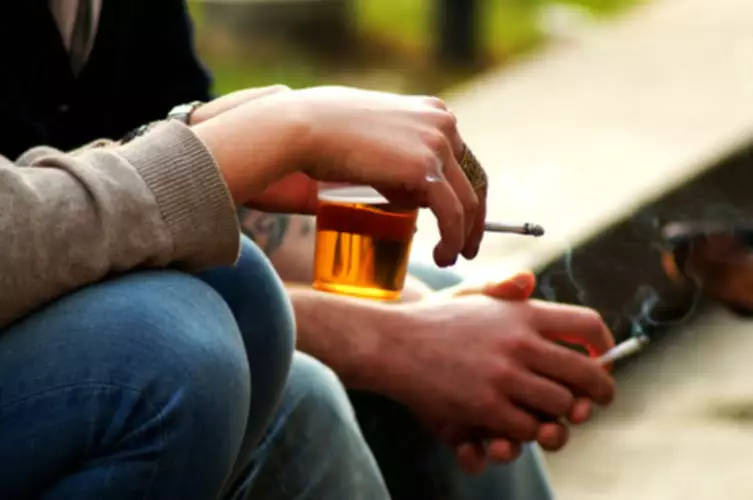Surprising Side Effects of Alcohol

His letter, in the Journal of the American Medical Association, prompted doctors to suggest he tried topical anaesthesia to numb the offending area – the nose, rather than the groin. The nose, like the genitals, contains erectile tissue, researchers say in the Journal of The Association of Physicians of India. Bright light, including sunlight, can bring on a fit of sneezing. Sneezing from chemical and physical irritants is not due to the release of histamine, so most antihistamines would not be expected to help in these cases either. Remember those old cartoons when black pepper was used to launch a character into a sneezing attack?

Can you sneeze in your sleep?
Sunset works with the Drug rehabilitation body to break down alcohol quickly and effectively, so you don’t experience the negative symptoms. Alcohol intolerance can cause immediate, uncomfortable reactions after you drink alcohol. The most common signs and symptoms are stuffy nose and skin flushing. If you have strange symptoms soon after drinking, your body may not be processing alcohol properly.
What You Can Do To Prevent Sneezing When You Drink
The dilation then extends to blood vessels throughout your body, including those in your nose. When you drink alcohol, it’s absorbed into your bloodstream and quickly travels to your brain. As it does, it causes your blood vessels to dilate or widen.
Health Conditions
As with the other symptoms, take note if this happens even after one drink. In one 2005 Swedish study, those with asthma, bronchitis and hay fever were more apt to sneeze, get a runny nose or have “lower-airway symptoms” after a drink, especially women. If people experience symptoms after drinking alcohol, they should speak with a doctor for further advice. Symptoms are more likely to be a reaction to the ingredients in a drink, or the alcohol causing other types of allergies to worsen. For example, alcohol may exacerbate preexisting asthma conditions.
- Be aware, however, that labels might not list all ingredients.
- It’s responsible for scalp and facial sensations and motor functions like chewing and swallowing.
- Unfortunately, nothing can prevent reactions to alcohol or ingredients in alcoholic beverages.
- Applying a cold compress to your nose will help to soothe the mucous membranes in your nose and reduce inflammation.
- Symptoms may occur within seconds or minutes of alcohol exposure and could trigger after exposure to even tiny amounts of the allergen.
Alcohol Intolerance Can Contribute to Nasal Congestion After Drinking Alcohol

Although being drunk can feel fun to begin with, it is a sign that alcohol has temporarily changed how the brain functions. Continuing to drink when already feeling drunk can increase a person’s risk of complications. A hangover is a group of unpleasant symptoms that can happen after drinking too much alcohol. As if feeling awful weren’t bad enough, frequent hangovers also are linked with poor performance and conflict at home, school and work. Physical irritants such as bright sunlight can also cause sneezing.
Surprising Side Effects of Alcohol

If you find that straight spirits make you sneeze, try diluting them with water or soda before you drink them. This will reduce the alcohol in the drink and make it less likely to trigger a sneeze. If uncertain about whether a person’s alcohol consumption is an emergency, err on the side of caution.
- Heavy drinking tends to cause more serious intoxication and may eventually cause serious health issues, such as blackouts or kidney failure.
- – it’s time to determine whether this is really a cause for concern or not.
- If you suspect that someone has alcohol poisoning — even if you don’t see the classic symptoms — get medical help right away.
- Sometimes, we find ourselves bracing for a sneeze’s impact at unusual moments.
- Having a mild intolerance to alcohol or something else in alcoholic beverages might not require a trip to a doctor.
If someone believes they have an alcohol allergy or intolerance, they should stop drinking alcoholic drinks and visit their healthcare provider for testing and advice. The third type of headache caused by alcohol is a “Delayed Alcohol-Induced Headache” (“DAIH”). These headaches usually occur hours after a patient has stopped drinking, as their blood alcohol level returns to zero. While the cause of DAIH is unknown, researchers believe they are related to a drop in a neurotransmitter called serotonin, which regulates the body’s central pain control. When serotonin levels drop, pain signals are dysregulated, and people are more likely to experience painful conditions like headaches. Sunset Alcohol Flush Support is a natural supplement that works specifically to reduce all of these symptoms, including a stuffy nose after drinking alcohol.
- The good news is that alcohol intolerance isn’t too much of a concern.
- If you find that warm drinks make you sneeze, try chilling them before you drink them.
- Remember those old cartoons when black pepper was used to launch a character into a sneezing attack?
Finally, acetate is further broken down into water and carbon dioxide and, voila! We use a pharmacist-formulated blend of Glutathione, Dihydromyricetin, Cysteine, L-Theanine, & B Vitamins to stop alcohol flushing before it can begin. If you’ve ever wondered – why does my face get red when I drink – this could be why. Read beverage labels to see whether they contain ingredients or additives you know cause a reaction, such as sulfites or certain grains. Be aware, however, that labels might not list all ingredients.

Headaches
For many drunk sneezing people, wine is the drink that causes them to sneeze. This is likely because wine contains histamines, which trigger allergies. If you’re allergic to wine, you may notice that you sneeze more after drinking it. But some people are more likely to have hangovers than others are. A difference in a gene that affects the way the body breaks down alcohol may make some people flush, sweat or become ill after drinking even a small amount of alcohol.